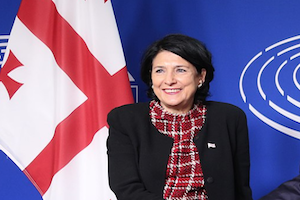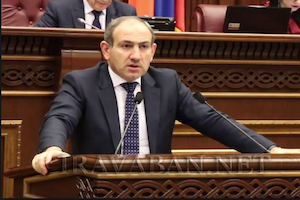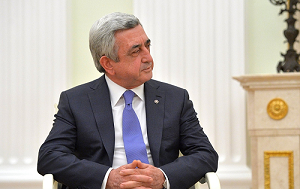Many Challenges Await Pashinyan after Landslide Victory
By Natalia Konarzewska
October 1, 2021, the CACI Analyst
Armenia’s incumbent Prime Minister Nikol Pashinyan and his Civil Contract party won by an overwhelming margin in snap elections on June 20. Pashinyan confirmed his strong mandate despite his government’s responsibility for the defeat in the 2020 war with Azerbaijan over Nagorno-Karabakh, and its limited success in handling pressing issues such as the return of Armenian prisoners of war and the border conflict with Azerbaijan. Post-war Armenia faces a large number of serious challenges and to tackle them Pashinyan and his team will have to downplay its populist rhetoric in favor of improved governance.

Georgian Politics in Anticipation of the 2020 Parliamentary
By Casper Wuite
May 28, 2019, the CACI Analyst
Only six months after a closely fought presidential election, Georgia’s political forces are repositioning themselves for the 2020 parliamentary elections. With Georgian Dream’s popularity waning – the party won landslides in previous votes – the party may need support from conservative and ultra-nationalist political parties in order to form a majority government after 2020. The international community, concerned about the rise of pro-Russian and nationalist sentiment, will keenly watch the 2020 elections to see in which direction the country, and its process of democratization and Euro-Atlantic and European Integration, is heading.

Armenia's New Government Struggles with Domestic and External Opposition
By Armen Grigoryan
March 20, 2019, the CACI Analyst
After winning an overwhelming majority at the snap parliamentary elections in December, Armenia’s Prime Minister Nikol Pashinyan has formed a new cabinet and presented its program. While Pashinyan enjoys a high level of public approval, probably the most serious challenge awaiting his cabinet in the coming months is withstanding the massive campaign by the former regime’s proxies to undermine the government’s credibility in order to avoid the prosecution of some top-level former officials and to prepare the ground for their possible return to power. Speculations about the possibility of unilateral concessions on the Nagorno-Karabakh issue have been at the center of the campaign.

Armenia’s Political Forces Get Ready for Parliamentary Elections
By Armen Grigoryan
March 20, 2017, the CACI Analyst
March 5 marked the start of official campaigning for Armenia’s parliamentary elections, scheduled for April 2, after which a parliamentary system will replace the current presidential one. Yet these elections are unlikely to bring about any significant changes in either the economic and social spheres or in Armenia’s pro-Russian foreign policy, given the dominant position of the ruling Republican Party of Armenia (RPA). The opposition running for election is fragmented and short of resources, and will compete in an election system favoring the RPA.




